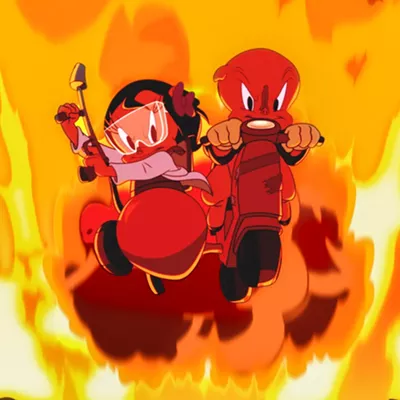It is a rare thing when a film warns you up front that it is likely going to lose you by the time it all comes to a close. Yet that is exactly what Don't Make Me Go does in its odd opening. "You're not gonna like the way this story ends, but I think you're gonna like this story" is the very first thing we hear in voiceover. Delivered by the endearing Wally (Mia Isaac, in a strong feature debut), it is a statement that hangs over the rest of the initially engaging father-daughter road-trip drama as we wait for the shoe to inevitably drop, revealing what she is talking about. When it does, the entire rest of the experience falls into oblivion with it.
It all begins with the melancholic Max, a single father who is struggling to raise his teenage daughter Wally all on his own. Played by John Cho (Harold & Kumar), Max is a man who is in over his head about how best to be a parent and can be domineering as a result. When he gets a grim diagnosis that he has a brain tumor, leaving him facing death from either the passage of time or risky surgery, he makes a plan. He decides he is going to take Wally on a trip to reconnect her with her estranged mother so that she will have someone after he is gone from this world. He doesn't tell her any of this, saying he just wants father-daughter bonding time and that they are making the drive so he can attend his college reunion. It is quite straightforward, taking part in the long-running cinematic tradition of putting your characters on the road as a way of creating an emotional journey alongside a physical one.
This facade lets Cho instill everything with a more somber sensibility as Max carries both the lie and his mortality almost entirely alone. Cho is a fantastic actor who can capture these restrained emotions with ease, as seen in the reflective drama Columbus or the tense thriller Searching. Just a subtle expression or change of posture can convey so much as he grapples with the crushing weight on his shoulders. Isaac's Wally is a counterbalance, relatably rebellious as she seeks out her own independence. Their back-and-forth becomes the beating heart of the film, drawing you into their journey of reconnection.
There is an occasionally wacky undercurrent, including an early moment that may set a record for the quickest appearance of a penis and jarring musical choices that undercut many a scene. What keeps you with it is how the tone of the trip becomes sweet yet deeply sad, captured visually via frequently changing colors. Even with all their bickering and disagreement, this may be one of the last times they'll get to be together. This ensures all the silliness of driving mishaps and unexpected twists take on greater emotional significance.
Without spoiling its ending, which itself spoils everything that preceded it, it takes such a sudden swerve in the final act that the entire film is left reeling and scrambling to make sense of what happened. It then relies on narration that takes on a flippant and borderline insulting tone to fill in the gaps. It is the cinematic equivalent of shooting yourself in the foot and somehow needing to drag yourself to the end. While one could generously say that the point of this ending is about how life can be incredibly unexpected, it still remains woefully rushed. It should have given itself either more time to reflect on what happened or done away with this hasty ending entirely. Instead, it concludes with such a haphazard and unearned sentimentality that everything before it is rendered pointless as a result. While it did try to warn us that this was coming, nothing could prepare viewers for such a feckless failure of a finale. ♦



















